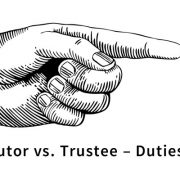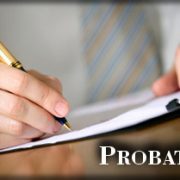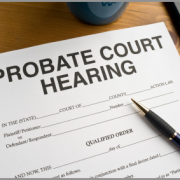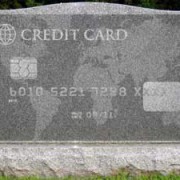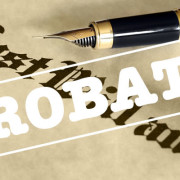Difference Between a Trustee and Executor Within a Testamentary Trust
Cleveland, Ohio Estate Planning Dan A. Baron Explains the Difference Between an Executor and Trustee:
Estate planning can be complicated and sometimes difficult to bear when charged with the responsibility as executor or trustee of an estate. If you have minor children, then you probably have set up some form of testamentary trust coupled with your will and power of attorney. Within these estate planning documents, there are designated executors and trustees that have been carefully selected to administer your estate after you pass. It’s important to talk with your executor and trustee and let them know their responsibilities after your’re gone. Below is a quick summary of the difference between executor and trustee of a testamentary trust.
The Executor’s responsibility is to liquidate or otherwise gather all estate assets, pay any outstanding bills and then transfer assets from the name of the decedent to the beneficiaries named in the Will (most often the decedent’s children). They also make any necessary filings with the court and attend any court hearings. Most Executor’s elect to use an attorney to help them with this so the process runs smoothly. Once all assets are in the name of the beneficiary, the Executor’s job is done. The complexity of the estate will determine how long the Executor is needed.
In comparison, a Trustee receives the assets from the Executor and then, with court approval, invests the trust assets in savings account, investment accounts, or whatever they deem appropriate. Most importantly, the Trustee manages the funds and makes distributions to the trust beneficiary (usually children) when needed (i.e. to pay school tuition, living expenses, doctor bills, etc.). Most clients set a maturity age of 25. When the children reach the age of 25, the trustee distributes the balance of the trust funds and that particular child’s trust is terminated. The Trustee will be required every two years to make reports to the court as to the value of the trust. As you can imagine, the length of time the Trustee will be needed will depend upon the age of the children.
If you would like to learn more about the responsibilities and an executor and trustee, or have questions, contact our office at 216-276-4282. You will speak directly with an Cleveland, Ohio estate planning attorney who can help you set up a trust, will, power of attorney, medicaid planning, and more. If you would like to attend one of our FREE seminars, please visit this link.

